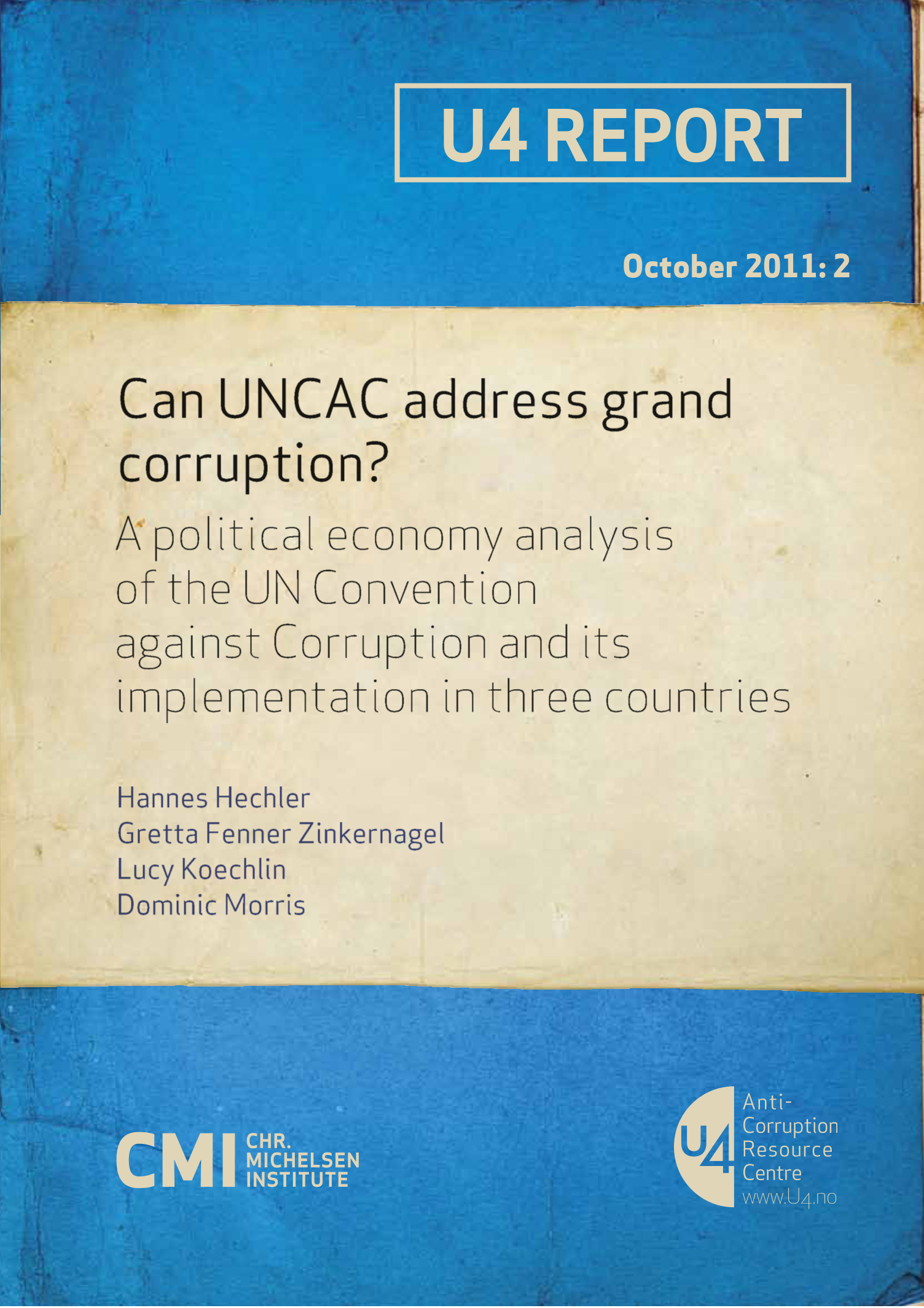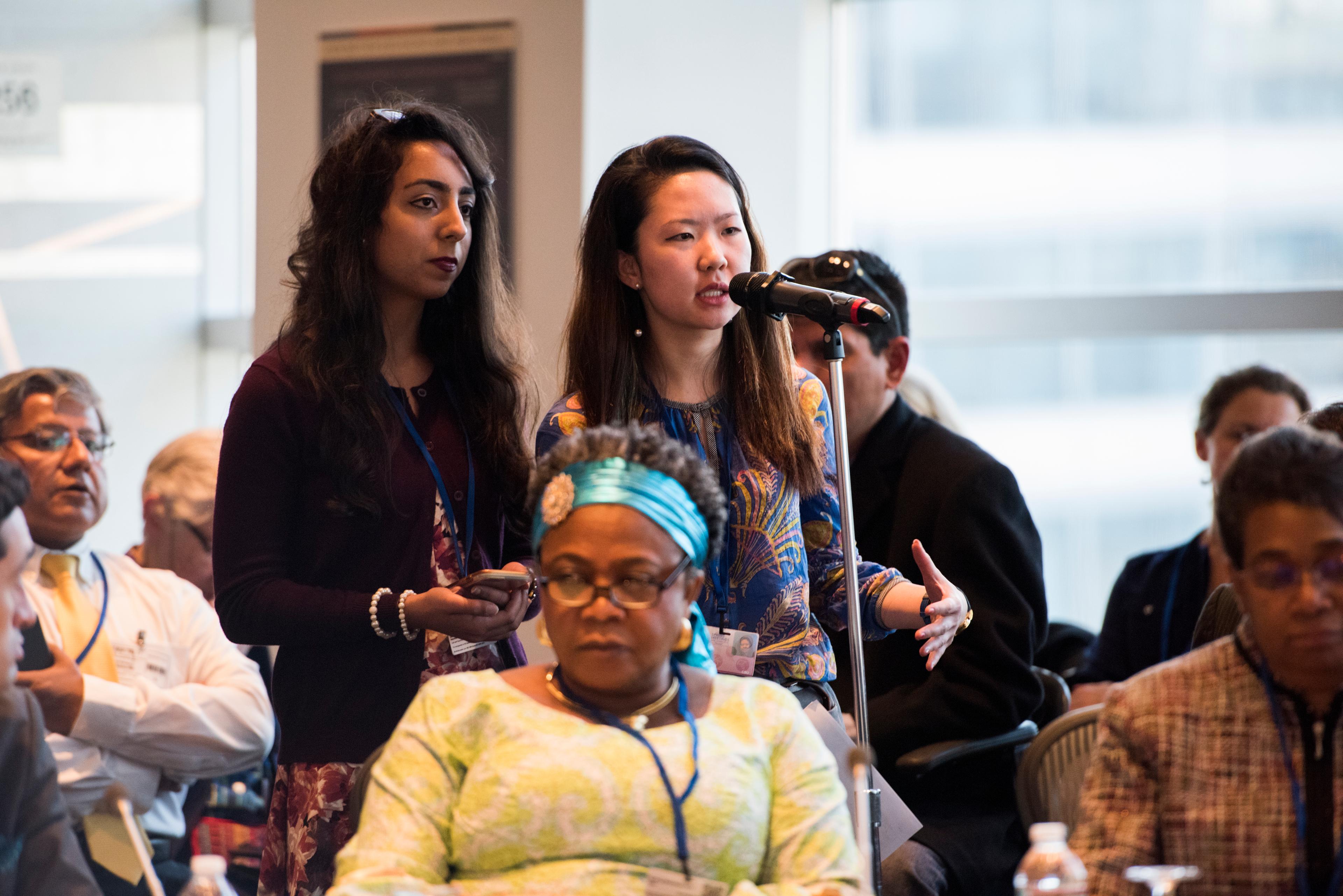U4 Report
Can UNCAC address grand corruption?
The political economies of many developing countries are characterised by varying degrees of patronage and state capture, a reality that has far-reaching implications for measures addressing corruption. Political strategies in such contexts often include maintaining political and economic power through personalised relations and seeking to influence political decisions for the benefit of an individual or group. Gaining and retaining power within these systems is a resource-intensive process, and corruption is a common way to sustain extensive power networks.
This report asks whether this insight has found its way into one of the most important current anti-corruption instruments, the United Nations Convention against Corruption (UNCAC). Analysis of the Convention itself and implementation efforts in Bangladesh, Indonesia and Kenya suggest that UNCAC is only partly suited to address the political nature of corruption, especially if not complemented by further reform measures.

Cite this publication
Hechler, H.; Koechlin, L.; Zinkernagel, G.; Morris, D. 2011. Can UNCAC address grand corruption? (U4 Report 2011:2) 73 p.
Disclaimer
All views in this text are the author(s)’, and may differ from the U4 partner agencies’ policies.
This work is licenced under a Creative Commons Attribution-NonCommercial-NoDerivatives 4.0 International licence (CC BY-NC-ND 4.0)


